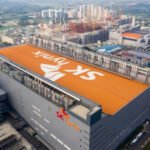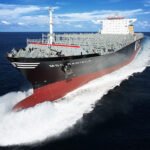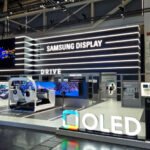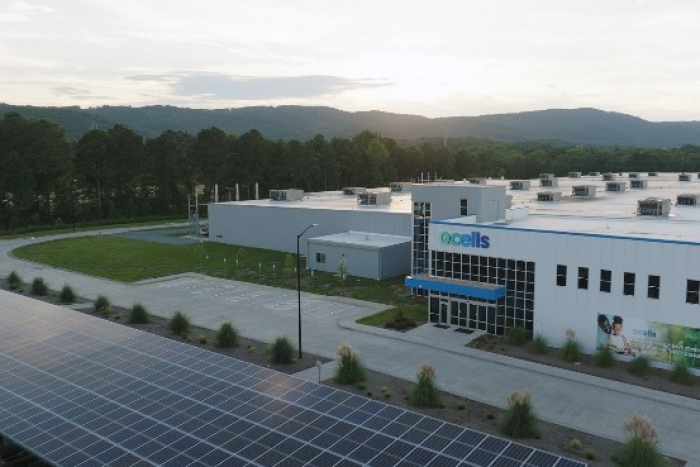
LG and Hanwha groups will join forces to develop and sell solar energy devices as a package to challenge Tesla Inc., a pioneer in the solar energy package market, while widening the gap with Chinese and Japanese rivals, according to industry sources on Sunday.
The two South Korean conglomerates are also considering jointly building a battery plant dedicated to solar energy storage systems (ESS), which is expected to see high demand alongside the growing energy needs, driven by the artificial intelligence boom.
They will launch a package of energy products tailored for home solar energy generation together in the second half of this year.
The package will be composed of Hanwha Solutions Corp.’s solar modules, LG Energy Solution Ltd.’s ESS and energy management software (EMS) to be jointly developed by Hanwha and LG, as well as Hanwha’s electric vehicle chargers.
It will mark the first time that the two companies, which supply solar modules and ESS respectively to households and power utilities, will produce a package of solar energy devices.
They expect their collaboration to boost price and quality competitiveness against Telsa that earns quarterly profits of over 1 trillion won ($680 million) from the solar energy package products.
“The solar energy market will expand significantly under the Donald Trump 2.0 era. The collaboration between the two companies is likely to create substantial synergy, leveraging the globally recognized product quality and advanced technology of Hanwha’s solar modules and LG batteries,” said an industry official.
By adding EMS and EV chargers to their portfolio, they can perfect their solar energy business.
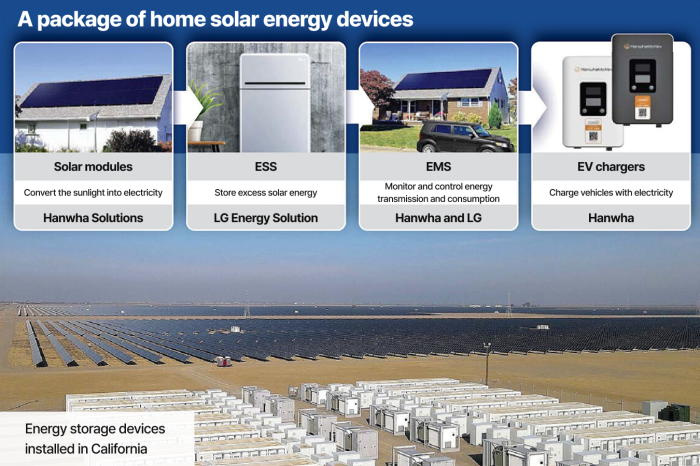
Their integrated solar energy products are modeled after that of Tesla, which turned profitable in the business after launching package options.
The US company controls about 30-40% of the home electricity generation market in the country. In 2024, Telsa is estimated to have raked in $10 billion from the energy business, up from $6 billion the year prior.
Industry observers said that packaging solar energy devices has become a global trend due to its convenience and compatibility.
The package typically integrates solar modules, ESS and EMS, along with an inverter that coverts direct current electricity from solar panels into alternating current electricity.
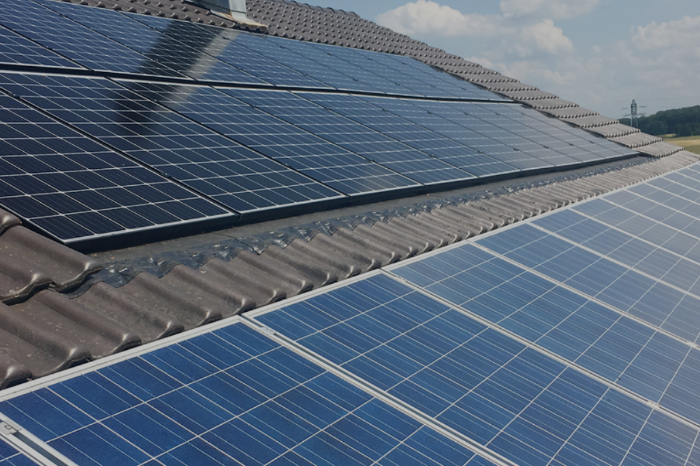
Their collaboration could be breakthrough for both Hanwha Solutions being challenged by Chinese solar module products and LG Energy suffering a protracted slowdown in EV demand.
Meanwhile, LG Energu and Hanwha Aerospace Co. under Hanwha Group are jointly developing batteries optimized for urban air mobility devices being developed by Hanwha.
In 2024, LG Energy’s operating profit tumbled by almost three fourths to 575.4 billion won from 2.16 trillion won the year prior.
In the nine months to September of last year, Hanwha Solutions turned to the red, posting a 40.2 billion loss. Its entire 2024 results will be released on Feb. 6.
By Sang Hoon Sung
uphoon@hankyung.com
Yeonhee Kim edited this article.

